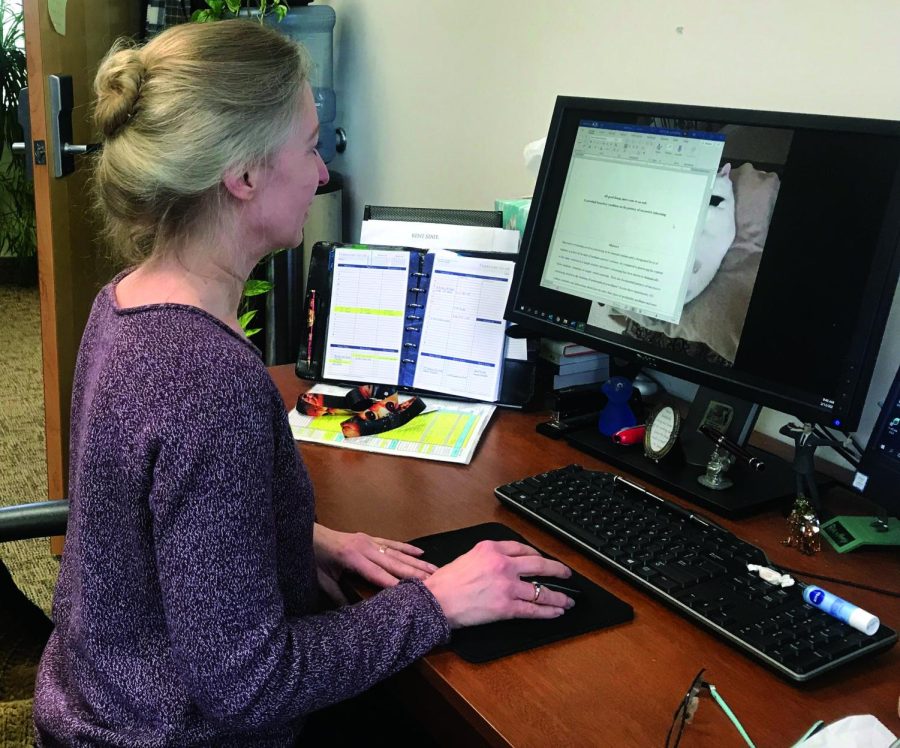Kent State professors study optimization of student study habits with new web program
Professor Katherine Rawson, one of the lead researchers for the study habits grant, at her desk on Feb. 13, 2020. The study habits grant is from the National Science Foundation and will help Kent State professors improve students’ retention of material.
February 16, 2020
Kent State psychology professors are developing a web program to study long-term student retention of concepts with a $552,000 grant from the National Science Foundation.
Lead investigators Katherine Rawson and John Dunlosky will analyze the effects of successive relearning during the three-year study on regimented use of flashcards.
“The payoff for long-term retention doesn’t really come from the first time you do it,” Rawson said. “It comes from each next time you pick the stack back up and do it.”
The web program will combine ideas of what and when to study to optimize learning, she said.
“If you actually successfully retrieve something from memory, it’s way more likely that you’re going to remember that information again later,” Rawson said.
The platform will encourage students to repeat their flashcards throughout multiple days.
“This isn’t about just rote memorization with absolutely no understanding with what you’re recalling,” she said. “The point is to recall the meaning of that concept.”
A key element of the program is breaking down information so students can accurately judge whether they really understand the information that they recall.
“Sometimes students have trouble realizing that what they recall doesn’t mean the same thing as the right answer,” she said. “We’re helping students make better decisions about when they’re really getting something right.”
The long-term retention can be for ideas other than vocabulary such as formulas, theories, definitions and algorithms, she said.
The research will focus on introductory science courses and follow these students into advanced coursework to test the effects of successive relearning on basic concepts, she said.
Earlier, smaller scale studies on successive relearning had students improving on their course exams by more than a letter grade, she said.
“We wanted to go beyond a laboratory,” she said. “Now that we think we’ve figured this strategy out, it should really be able to help actual students in actual classes.”
The purpose of the grant is to specifically develop a platform for this learning to take place, she said.
“All the discussions have now culminated into my team putting together a prototype,” said Sameer Jaleel, interim executive director of Systems Development and Innovation.
Jaleel’s team will build the model of the web program and monitor its behavior over time.
What sets this program apart is how material for these flashcards is already in the system. Students will not have to feed information into the program to make the flashcards as it is linked with the university, Jaleel said.
“It could grow as a permanent part of KSUMobile or Flashline,” he said as an example.
Other collaborators on this project are professors Ruth Leslie, Maxim Dzero and Greg Tinkler, as well as students on Jaleel’s team.
“It’s time to really put this strategy to the test, to see if it can help a broader range of students in a broader spectrum of courses,” Rawson said.
Anna Smith is a teaching reporter. Contact her at [email protected].












